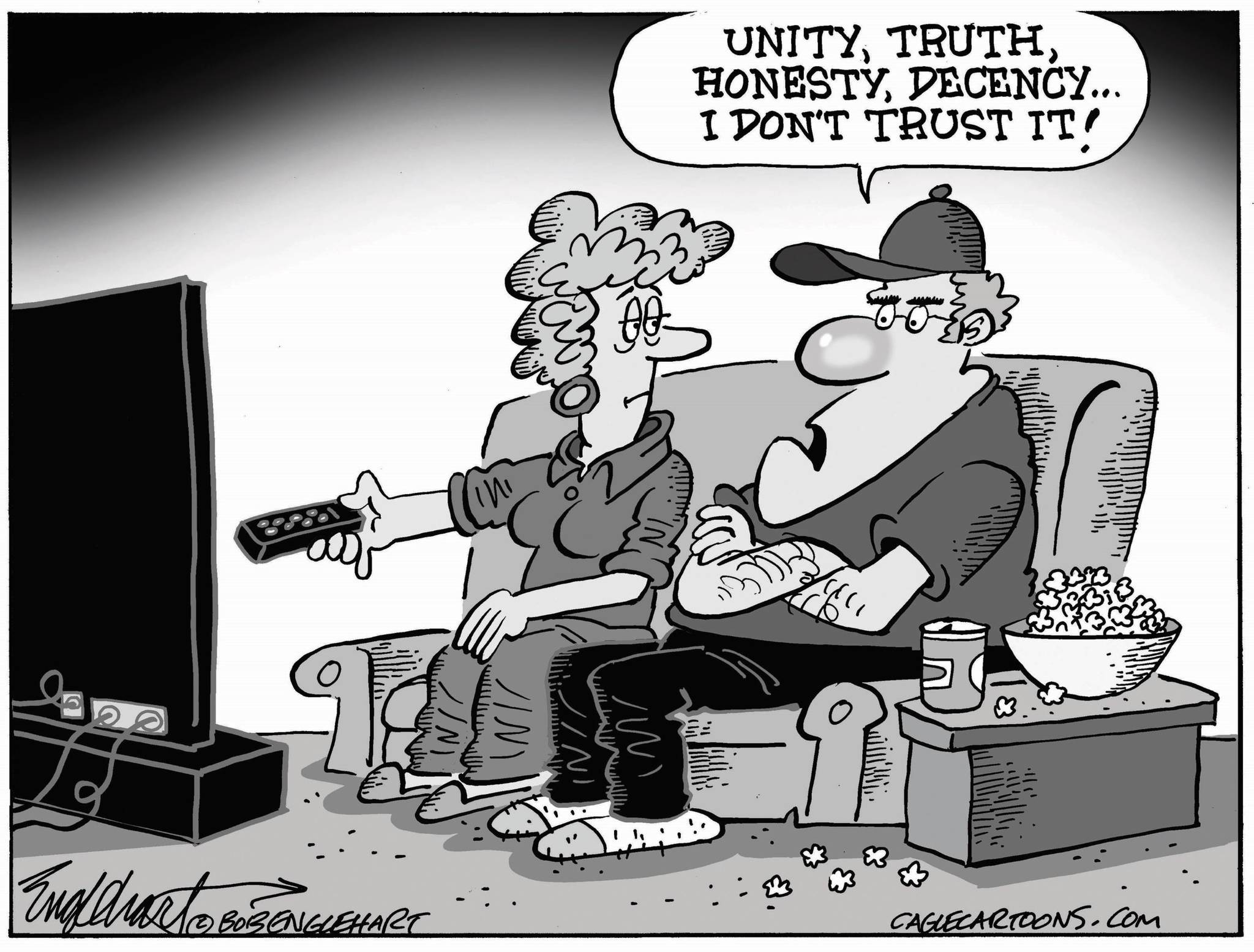By Martin Schram
Tribune News Service
In these pandemic days, when social distancing is not just polite but public policy, you would think famous former government officials, whose titles alone could fill a place to capacity, would know better than to cluster enthusiastically just to help an old friend.
But if you’d been in the Senate Intelligence Committee’s hearing room Wednesday you’d have realized that you were watching and listening to decades of Washington’s most famous titled newsmakers who were so eager to help they were virtually speaking at once.
You’d have recognized the famous Republican newsmakers: President Gerald Ford’s undersecretary of commerce, Ford’s presidential campaign manager, President Ronald Reagan’s chief of staff, Reagan’s treasury secretary, President George H.W. Bush’s 1980 and 1988 presidential campaign managers, G.H.W. Bush’s secretary of state, G.H.W. Bush’s chief of staff.
And the famous Democrats: the once-powerful House Budget Committee chairman, President Bill Clinton’s chief of staff, Clinton’s director of the Office of Management and Budget, President Barack Obama’s CIA director, Obama’s defense secretary. And you might have realized there was one long-ago Republican interloper there in that Democratic cluster: President Richard Nixon’s first director of the Health Education and Welfare department’s Office of Civil Rights, who seemed quite comfortable to be there, sharing the sentiments of all those Democrats.
Which is to say: James A. Baker III and Leon Panetta — who between them seem to have held just about every title Washington has to offer — were all of the above. They were there virtually, as one of the most impressive bipartisan tag-teams ever to grace a congressional hearing. Speaking separately, from their offices in Houston and Santa Clara, California (where they oversee university institutes that bear their names), they were introducing — and profusely recommending for quick Senate confirmation — President Joe Biden’s nominee for director of the Central Intelligence Agency, longtime prominent diplomat William Burns.
Baker and Panetta spoke of all the global crises they dealt with during their decades, and praised Burns’ important work to their successful outcomes. (Panetta talked of their work in the Situation Room on the mission that captured Osama bin Laden.)
“In my opinion,” Baker concluded, “this confirmation should be a bipartisan no-brainer.”
Frankly, I assigned myself to cover that hearing because I was seeking a feel-good moment of journalistic R-&-R. I wanted to see if there is indeed a hope that patriotic bipartisanship in global crises can still exist in this place that has become Hate City. I wanted to see if there’s at least a chance that patriotism and principle can ever again trump politics — as it used to back in the days when I first met, covered and came to respect Panetta and soon after, Baker.
And yes, Panetta was that young Republican I first covered back when he was displeasing Nixon by pushing for quick desegregation of schools in the South. Nixon had struck a deal with Strom Thurmond’s gang, promising he’d have a go-slow “Southern strategy.” Nixon’s team forced Panetta out of his job. The next time Panetta came to town, he was that Democratic congressman from California.
Soon after, I met Jim Baker on his first day as Jerry Ford’s 1976 campaign manager. We were onboard a campaign train whistle-stopping down the state of Illinois when we were introduced by Ford’s young chief of staff — a fellow named Dick Cheney. He now makes it into the news only when his daughter makes news.
And speaking of Liz Cheney, it’s indeed worth noting that she has now made news not because she happens to be the most hard-line and most principled conservative Republican in the House. She has become controversial in her own shipwrecked party because she had the guts and patriotic principles to tell her voters the tough truth they needed to hear — but weren’t getting from most of her fellow Republicans. Namely that their Republican supreme leader, the president, had been lying to them by claiming he won reelection in a landslide.
She was honest with her fellow Republicans. She is paying the political price that comes with becoming a profile in courage. She told the truth about the insurrection of Jan. 6. And, also on Wednesday, she again spoke truth to power — the power of the people — in an appearance at the Reagan Institute.
“What happened on that day must never happen again,” she said. “And we must not look away or trivialize it. … The freedom that we all defend belongs not to us. It belongs to our children and grandchildren. To them, we owe fidelity to the Constitution and a duty to uphold our oath, an oath we swore under God, to do everything necessary to defend it.
“We will right the unforgivable wrongs of Jan. 6. We will make our party worthy once again of the mantle of Lincoln and of Reagan.”


